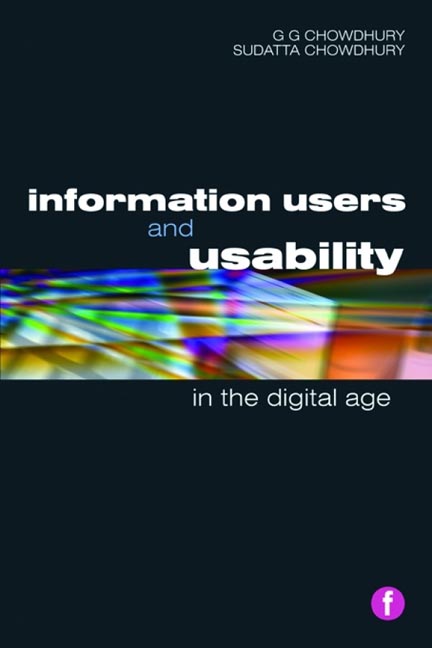Book contents
- Frontmatter
- Contents
- Preface
- Figures and tables
- 1 Introduction
- 2 Information needs and user studies
- 3 Human information behaviour studies and models
- 4 Usability study basics
- 5 Usability study participants
- 6 Usability data analysis
- 7 Web usability
- 8 The usability of digital libraries
- 9 The digital divide, digital natives and usability
- 10 Issues and trends in usability research
- Index
8 - The usability of digital libraries
Published online by Cambridge University Press: 09 June 2018
- Frontmatter
- Contents
- Preface
- Figures and tables
- 1 Introduction
- 2 Information needs and user studies
- 3 Human information behaviour studies and models
- 4 Usability study basics
- 5 Usability study participants
- 6 Usability data analysis
- 7 Web usability
- 8 The usability of digital libraries
- 9 The digital divide, digital natives and usability
- 10 Issues and trends in usability research
- Index
Summary
Introduction
Usability studies of digital libraries primarily aim to find out how easily users can interact with the interface of the digital library, find useful information and use retrieved information to accomplish specific tasks, and what their general impressions about the various features and functionalities of the library are. Some usability studies also aim to gather information about the non‑users with a view to finding out why potential users don't use the digital library, and what can be done to make it usable for them.
Chowdhury, Landoni and Gibb (2006) suggested that usability of a digital library depends on a number of factors, such as the effectiveness and efficiency of the information access system, the ease of use and friendliness of the user interface, users’ needs, usage patterns and so on. Sumner (2005) emphasized that understanding the needs and type of work of users, and innovative user interfaces and interaction mechanisms can influence better use of digital library resources, collections and services. Park (2000) observed that the heterogeneity and distribution of information resources is also an important usability factor. Bishop et al. (2000) pointed out that a digital library is a space where users engage with the information infrastructure, so user problems, user attitudes, specific use situations and work practices are important points for usability studies.
There have been a number of usability and evaluation studies of digital libraries over the past two decades, which have used a variety of usability study techniques and methods of data collections and analysis. Several models for usability and evaluation of digital libraries have also been proposed by research ‑ ers. This chapter discusses various issues related to the usability of digital libraries and discusses the factors that researchers have identified as important for usability studies of digital libraries. Finally it discusses some usability study models, with particular reference to MEDLIS, a usability study model developed by one of the authors of this book in the course of a research project.
- Type
- Chapter
- Information
- Information Users and Usability in the Digital Age , pp. 153 - 168Publisher: FacetPrint publication year: 2011



